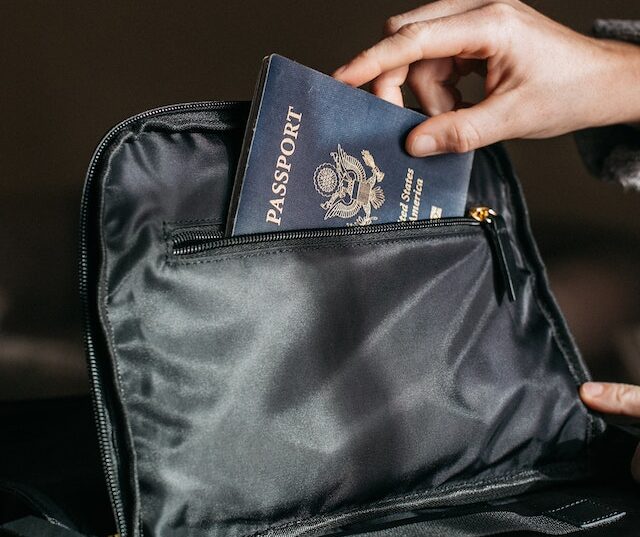In recent years, Spain has become a famous destination for digital nomads from all over the world. With its vibrant culture, beautiful landscapes, and excellent quality of life, it’s no wonder that many remote workers are choosing to make Spain their temporary home. However, before embarking on your digital nomad journey to Spain, it’s essential to understand the different types of visas available to you. This comprehensive article will explore the best visa type for a digital nomad in Spain, including the existing options and the upcoming changes in the law.
What is a Digital Nomad Visa?
Before diving into the details of digital nomad visas, let’s first define what a digital nomad is. A digital nomad is an individual who embraces a location-independent lifestyle, combining work and travel. These individuals can work remotely from anywhere in the world as long as they have a stable internet connection.
A digital nomad visa is a travel authorization that allows individuals to live and work in a foreign country while maintaining their remote work status. Not all countries have official digital nomad visas, but it is still possible to apply for specific visas that accommodate digital nomads. These visas may have different names, depending on the country, but they all serve the purpose of enabling remote work and travel.
Best Visa Type For A Digital Nomad In Spain
Spain offers several visa options for digital nomads, each with its own set of requirements and benefits. Let’s explore the different types of visas available to digital nomads in Spain.
Spain Schengen Visa
The Spain Schengen Visa is suitable for digital nomads who plan to visit Spain for non-essential purposes, such as tourism or short business trips. This visa allows a stay of up to 90 days within a 180-day period, granting nomads ample time to experience the Spanish culture and lifestyle. Additionally, the Schengen Visa provides the advantage of traveling to other Schengen Area countries, opening up opportunities for further European exploration.
It’s important to note that the Schengen Visa does not permit individuals to engage in economic activities or remote work in Spain. Thus, this visa may not be the most suitable option if your primary purpose is remote work.
Spain Non-Lucrative Visa (NLV)
The Spain Non-Lucrative Visa is a popular choice among digital nomads planning to stay in Spain for an extended period. This visa allows non-European individuals to temporarily or permanently reside in Spain, provided they meet specific requirements.
To qualify for the Spain Non-Lucrative Visa (NLV), applicants need to prove they have enough financial resources to sustain themselves throughout their stay. This can be met by displaying a minimum annual income of €27,115 or a confirmed monthly income of €2,259.53. Furthermore, applicants are required to secure private health insurance or travel insurance that provides coverage for the entirety of their stay in Spain.
It’s worth mentioning that the NLV does not permit individuals to work for a Spanish employer. However, it does not explicitly address remote work for foreign companies’ employees. As a result, there have been cases where NLV applications were denied due to the intention of remote work.
Spain Golden Visa Program
The Spain Golden Visa Program, also called the Spain Investor Visa, allows digital nomads to live, travel, and work freely in Spain. However, this visa requires significant investments in Spain, making it more suitable for those who are willing to make substantial financial commitments.
The specific requirements for the Golden Visa Program vary depending on the investment option chosen. Generally, applicants must invest a minimum amount in Spanish real estate, business projects, or government bonds. Once the investment is made, individuals can enjoy the freedom to work remotely in Spain or any other European Union country.
Spain Self-Employment Visa
The Spain Self-Employment Visa is an excellent option for digital nomads who wish to live and work in Spain without the need for substantial investments. Unlike the Golden Visa Program, this visa does not require any specific financial commitments.
To qualify for the Self-Employment Visa, applicants must show their capability to support themselves throughout their stay financially. Once the visa is granted, it remains valid for one year. Within the initial month of arriving in Spain, applicants should request a residence permit, obtain a foreign national identity card, and enroll as self-employed in the Social Security System.
After the initial one-year period, the residence permit can be renewed for two additional years, provided the minimum stay requirements are met. After five years of continuous residence in Spain, individuals may apply for permanent residency.
The New Digital Nomad Visa in Spain
Exciting changes are on the horizon for digital nomads planning to live and work in Spain. Spain is in the process of introducing an official digital nomad visa, which will provide clearer rules and regulations for remote work in the country.
The new Startup Law, currently in the public consultation phase, aims to create a special visa for digital nomads, remote workers, and entrepreneurs. This visa will allow individuals to legally live and work remotely in Spain for up to 12 months, with the option to extend for an additional 24 months.
One of the significant advantages of the new digital nomad visa is the favorable tax regime it offers. Digital nomads will benefit from reduced income tax rates, making Spain an even more attractive destination for remote work.
Who Will Advantage From the New Digital Nomad Visa?
The new digital nomad visa introduced by the Startup Law will address the uncertainties surrounding remote work in Spain. It will provide a straightforward process for individuals who wish to work remotely without violating visa regulations. The following groups will benefit from the new visa:
- Foreigners who want to work remotely in Spain: As long as a company outside of Spain employs them, they will be eligible for the new digital nomad visa.
- Digital nomads: Individuals who generate income from various sources and regularly travel to different countries can take advantage of the new visa.
- Foreign companies in Spain: Employees working for a foreign company with operations in Spain can choose to apply for a specialized visa designed for work-related travel.
Requirements for the New Digital Nomad Visa
While the exact requirements for the new digital nomad visa are yet to be officially published, certain general requirements can be anticipated. These requirements may include:
- Proof of employment with a company outside Spain: Applicants must demonstrate their employment by a foreign company and provide details of their job responsibilities.
- Income restrictions: Applicants must show that the income earned in Spain does not exceed 20% of their total income.
Conclusion
Spain is paving the way for digital nomads with its range of visa options and the upcoming introduction of an official digital nomad visa under the new Startup Law. Whether you choose the Spain Schengen Visa, the Spain Non-Lucrative Visa, the Golden Visa Program, or the Self-Employment Visa, each option has its own unique benefits and requirements. The new digital nomad visa will bring clarity and favorable conditions for remote workers, making Spain an even more appealing destination for digital nomads worldwide. Keep an eye out for the official publication of the new law and take advantage of the opportunities it presents for living and working in Spain as a digital nomad.





